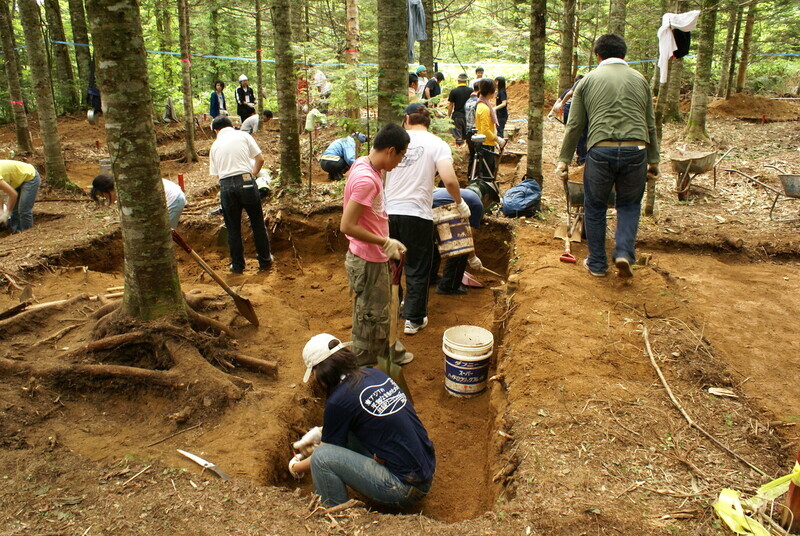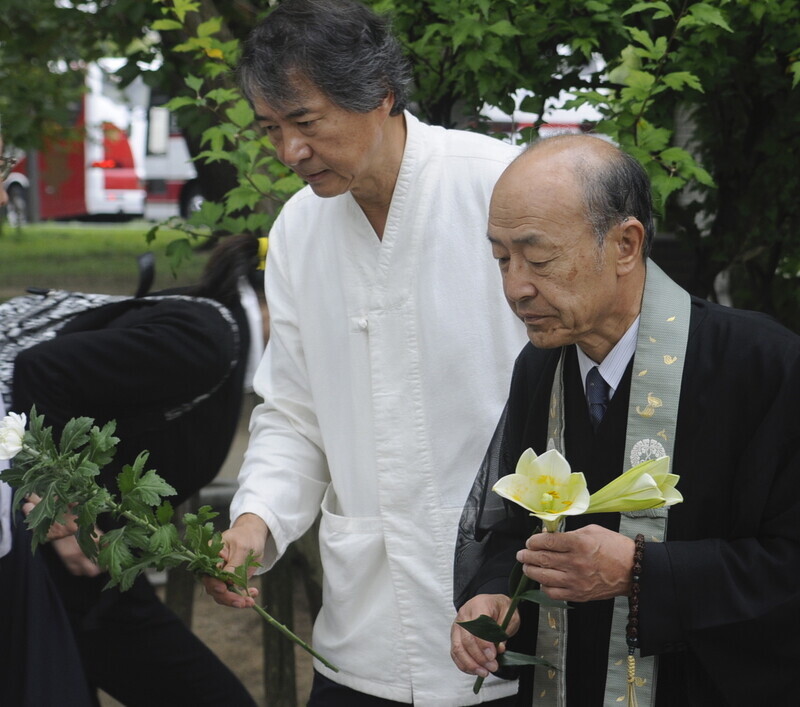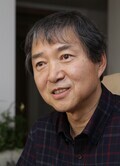hankyoreh
Links to other country sites 다른 나라 사이트 링크
[Column] How I am pro-Japanese in my own way

One fine day in 1987, one year before the Summer Olympics were held in Seoul, a small festival was held in the Ikuno Ward of the Japanese city of Osaka. This Korean Cultural Festival, as it was called, provided a day of fun for Zainichi Koreans in the area.
Performers in traditional attire paraded through the streets, putting on an energetic show. Some musicians shed tears as they banged on the janggu, a two-headed drum, and the kkwaenggwari, a small gong, which they barely knew how to play. This was one of the first times these ethnic Koreans had showcased their culture, given their fears about discrimination in Japanese society.
A variety of cultural performances and plays were held on the sports field of a Japanese elementary school that had been borrowed for the festival. In one corner of the field, a petting zoo had been set up. There weren’t any exotic animals there, just chickens, pigs, calves, sheep, goats, and rabbits — the kind of animals raised on a farm.
An old man in a straw hat gave kids a pony ride, leading them along a white line drawn in the shape of the Korean Peninsula. As each child finished the ride, the man would tell them, “I hope you get to travel around South and North Korea once Korea is unified!” This man was Ryosuke Hanafusa, a Japanese man who ran a farm nearby.
When I asked the man about the pony rides, he explained that he felt sorry that Korea had been divided instead of Japan.
As a boy during the War in the Pacific, Hanafusa had been taught that contempt for Koreans and Chinese was part of Yamato-damashii, or the spirit of Japan. But following Japan’s defeat, he’d realized that was a lie. Out of a sense of guilt, he’d resolved to do something that would help everyone who the Japanese had hurt.
Hanafusa told me he’d once been a producer at NHK. Now he was running a farming commune where people could come to experience life on the farm.
He also volunteered to teach at a summer camp for children from both Mindan, which is affiliated with South Korea, and Chongryon, which is affiliated with North Korea. The Korean community in Japan has long been divided between the two organizations.
The most interesting part about the summer camp for these kids was that they had to kill the chickens that were going to be served at the camp. The idea was to tackle continuing discrimination against the descendants of Japan’s untouchable caste of Burakumin, who once had to do the “dirty work” of killing animals, just like Korea’s Baekjeong.
The children were taught that farming involves not only growth but also death. Both the animals raised for their meat and rice, barley, and vegetables are living creatures, just as we are, and we take their lives to sustain our own.
Hanafusa taught the children to value and appreciate the lives that we take. He also told them that people need to learn how to respect each other and find a way to get along.
My wife, who was full of anti-Japanese sentiment, began studying Japanese so that she could talk directly to people like him. A few years ago, he passed away, leaving a short message of farewell: “I’m going to get a head start. Take your time and see you on the other side.”
Even today, I still miss Hanafusa. I know I’ll be following in his footsteps before long.
I have an old friend in Japan whom I’m very fond of. Yoshihiko Tonohira is a monk in a small temple in rural Hokkaido. When I first visited the nursery there, the children were barefoot, playing in the mud.
Tonohira brought me to a birch grove deep in the woods and showed me the graves of Korean forced laborers who had never made it home.
Though the monk is ten years older than me, we’ve spent the last three decades as equals. We don’t use the “older brother, younger brother” titles typical for friends with such an age gap.
We wanted to avoid the sense of hierarchy that those titles tend to produce, both in Japan and Korea. Instead, we refer to each other by nicknames and use informal language. We’ve done a lot together.
Our friendship sparked a project to recover the remains of Korean forced laborers. It’s a project in which many young people, both Koreans and Japanese, have taken part for more than two decades, since 1997.
Among the bodies we’ve recovered, 115 people came from South Korea. Their remains were finally sent home, after an absence of 70 years.
But the remains of people from North Korea still haven’t gone back to their loved ones, even though Tonohira visited Pyongyang twice to arrange their return.

The authorities in North Korea weren’t very interested in the project. They had no time for a simpleminded monk from a tiny organization who wanted to send back the remains that he’d dug up — unless, that is, he could arrange some kind of apology or compensation from the Japanese government or Japanese companies.
Even after learning that his efforts were doomed, Tonohira went back to Pyongyang, where he made an impassioned case for his project. Returning home empty-handed, he was sick for days. I really like that man’s stubborn honesty.
Young Koreans and Japanese have been touched by Tonohira’s steadfast dedication over the decades. He has taught them how to tend and heal historical injuries. He has also helped young Zainichi Koreans hurt by discrimination in Japanese society regain trust and hope in the Japanese.
Japan isn’t a monolith. There are Japanese who have come together to learn the truth and transcend the history of harm given and received. They are learning each other’s languages, learning how to work together across national borders.
These Japanese are dear to me. True reconciliation and friendship begin with the truth.

By Chung Byung-ho, Professor Emeritus of anthropology at Hanyang University
Please direct comments or questions to [english@hani.co.kr]

Editorial・opinion
![[Column] When ‘fairness’ means hate and violence [Column] When ‘fairness’ means hate and violence](https://flexible.img.hani.co.kr/flexible/normal/500/300/imgdb/original/2024/0516/7417158465908824.jpg) [Column] When ‘fairness’ means hate and violence
[Column] When ‘fairness’ means hate and violence![[Editorial] Yoon must stop abusing authority to shield himself from investigation [Editorial] Yoon must stop abusing authority to shield himself from investigation](https://flexible.img.hani.co.kr/flexible/normal/500/300/imgdb/original/2024/0516/4417158464854198.jpg) [Editorial] Yoon must stop abusing authority to shield himself from investigation
[Editorial] Yoon must stop abusing authority to shield himself from investigation- [Column] US troop withdrawal from Korea could be the Acheson Line all over
- [Column] How to win back readers who’ve turned to YouTube for news
- [Column] Welcome to the president’s pity party
- [Editorial] Korea must respond firmly to Japan’s attempt to usurp Line
- [Editorial] Transfers of prosecutors investigating Korea’s first lady send chilling message
- [Column] Will Seoul’s ties with Moscow really recover on their own?
- [Column] Samsung’s ‘lost decade’ and Lee Jae-yong’s mismatched chopsticks
- [Correspondent’s column] The real reason the US is worried about Chinese ‘overcapacity’
Most viewed articles
- 1China calls US tariffs ‘madness,’ warns of full-on trade conflict
- 2[Column] US troop withdrawal from Korea could be the Acheson Line all over
- 3[Editorial] Yoon must stop abusing authority to shield himself from investigation
- 4[Column] When ‘fairness’ means hate and violence
- 5[Column] How to win back readers who’ve turned to YouTube for news
- 6US has always pulled troops from Korea unilaterally — is Yoon prepared for it to happen again?
- 7[Book review] Who said Asians can’t make some good trouble?
- 8Naver’s union calls for action from government over possible Japanese buyout of Line
- 9Could Korea’s Naver lose control of Line to Japan?
- 10[Editorial] Korea must respond firmly to Japan’s attempt to usurp Line